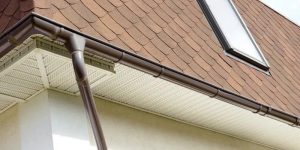Proper plumbing maintenance is essential for any homeowner seeking to protect their most valuable investment and assure their family’s well-being. By establishing a basic routine inspection and care regimen, homeowners can effortlessly safeguard against small issues escalating into expensive repairs down the road. This straightforward plumbing checklist breaks down seasonal and routine tasks that, when followed, help ensure a healthy home for long time.
Table of Contents
ToggleRegular Inspection of Pipes and Fittings
Keeping your plumbing system in good working order starts with routine inspections of the pipes and fixtures. At least once a year, check all visible pipes and fittings for leaks, corrosion, or wear and tear. Catching small issues early can help prevent costly repairs down the road. If you notice any problems, it’s a good idea to call in professional plumbers for a closer evaluation.
Plumbing contractors stay up-to-date on the latest materials and maintenance best practices. They know what warning signs to look for and can advise on preventative measures. For example, they may recommend replacing old galvanized pipes before leaks develop. Catching issues early allows repairs to be less invasive and cheaper compared to emergency work. Regular inspections from experienced plumbers are well worth the investment to maintain a safe, reliable plumbing system.
Drain Cleaning and Maintenance
To keep drains flowing freely, it’s important to remove buildup that can cause clogs over time. Pouring baking soda followed by vinegar down drains and running hot water helps break up grease, soap scum, and other residue. For tough blockages, specialty drain cleaners are highly effective. These contain ingredients like enzymes or acids that dissolve organic matter clogging pipes.
At least once or twice a year, use a plunger or drain snake to clear existing blockages. This simple maintenance prevents more serious backups requiring costly snake or hydro jetting services. It’s also a good idea to run hot water down seldom-used drains monthly to prevent accumulation when the drainage isn’t active. Neglecting drain cleaning leads to backed up sewer lines that flood basements or damage outside cleanouts and utility connections. Staying on top of routine drain maintenance is hassle-free insurance against more serious drain problems.
Water Heater Care and Safety
With proper care, a water heater can provide hot water for 10-15 years. However, neglecting maintenance puts homes and families at risk. It’s crucial to drain 1-2 gallons of sediment from the bottom of the tank annually. This extends the life of both the tank itself and its energy efficiency. Thermostat setting is also important – the recommended maximum temperature is 120°F to prevent risk of scalding as well as higher energy costs.
Check the entire unit for signs of rust, corrosion or cracks which indicate it’s time for replacement. During annual maintenance, inspect temperature and pressure relief valve, drain tube, and smoke/gas vent for obstructions. Spotting issues early can prevent catastrophic tank failures or carbon monoxide poisoning due to combustion complications. Following the manufacturer’s maintenance schedule and basic safety steps protects your investment and safeguards your family’s well-being. With proactive care, water heaters will serve homes reliably for many years.
Preventing and Addressing Leaks
According to EPA estimates, nearly 1 trillion gallons of water are lost to household leaks each year in the U.S. alone. Catching leaks is simply good for your wallet as well as the environment. Check your water meter periodically when no water is being used – if the dial is moving, you have a leak somewhere. Immediately fix dripping faucets and toilets that constantly run, as they can waste around 90 gallons or more daily.
Under-sink polybutylene pipe systems from the 1980s-90s were highly prone to developing pinhole leaks over time. If you have this type of plastic plumbing, it’s wise to proactively replace with copper. However, minor leaks can often be addressed through DIY repairs by cleaning and re-caulking pipe joints or replacing worn washers and o-rings. Catching issues promptly prevents further damage from unchecked moisture. With some basic skills and tools, many common plumbing problems can easily be remedied at home.
Toilet Maintenance Essentials
For optimal performance, toilets require occasional maintenance. Clean the bowl and flush mechanism with an all-purpose cleaner or diluted bleach and check for mineral or limescale buildup that impairs flushing. Periodically lubricate movable parts like the flush arm, chain, and flapper valve linkage with silicone spray. Catching worn flappers or flush valves early forestalls continual running issues that waste water.
Sediment and minerals left by hard water can cause staining, so scrubbing bowls every few months removes discoloration. Check caulking between the toilet base and floor periodically as well – cracks allow water intrusion that causes costly rot and mold growth. Re-caulk as needed for a watertight seal. Simple toilet maintenance keeps these fixtures functioning properly for years to come while preventing major repairs.
Faucet and Showerhead Upkeep
Mineral deposits clog faucet aerators and restrict showerhead spray patterns, reducing water pressure and flow. Unscrew and soak components in white vinegar to restore openings without abrasives that could damage finishes. Hard water scaling also forms inside pipes, valves, and fixtures where it touches water. Not removing it allows accumulation over time.
Periodically remove showerheads and clean hardened minerals from interior surfaces and pores that spray out of. For faucets, replace worn washers in handles that don’t shut off completely. Moisture trapped under dripping handles or stems promotes corrosion damage as well. Even just wiping down exterior surfaces after each use goes a long way in protecting surfaces from premature wear. Attending to these smaller tasks keeps fixtures performing their best for many years to come.
Seasonal Plumbing Considerations
Certain maintenance projects are best tackled each season:
- Spring/fall: Flush sediment from hot water heater, test hose bibbs and outside faucets, check sprinkler systems for winterizing/repressurizing.
- Summer: Inspect/clean roof vents and ventilation pipes to prevent humidity issues, bleed radiator valves, wash windows/siding to check for hidden plumbing leaks.
- Winter: Insulate exposed pipes in unheated areas to prevent freezing, prepare irrigation systems for winter by blowing out lines with compressed air/antifreeze.
Paying attention to season-specific tasks prevents common seasonal plumbing problems like frozen/burst pipes and basement flooding. Taking advantage of milder weather broadens the window to tackle major outdoor projects as well. Advanced planning keeps the whole system running smoothly all year long.
When to Call a Professional Plumber
While many minor issues can often be fixed with basic DIY skills, some problems require a licensed plumber’s expertise. Signs it’s time to contact a professional include: major leaks in difficult to access areas, drainage system backups, persistent toilet or fixture problems despite troubleshooting attempts, presence of sewer gas odors, hot water heater failure, or improper venting issues.
When hiring a plumber, seek referrals from trusted sources like local trade associations or check reviews online. Make sure they have current licenses and insurance in case of property damage. Obtain multiple estimates where possible, as diagnosis and repair costs can vary significantly between providers. An experienced pro can efficiently assess the most cost effective solution and make the repairs correctly for lasting results. In emergencies, quick response through licensed plumbers prevents further home damage.
In Summary
Regular maintenance is key to keeping plumbing systems in good working order for safety, reliability and affordability. Following these basic care steps catches small issues before they become costly repairs. Contacting professionals as needed complements DIY skills for tackling all plumbing situations with confidence. With proper attention, home plumbing provides dependable service for many years.
More Stories
Five Unparalleled Advantages of Deep Cleaning Your Home Weekly
A clean home is more than meets the eye; it’s an abode that welcomes health, relaxation, and serenity. Maintaining a...
Restoring Homes in Allen: The Critical Steps for Water Damage Repair and Prevention
Water damage can strike when least expected, turning homes into a chaotic mess. For homeowners in Allen, Texas, and those...
Why Regular Maintenance of Your Heating System is Crucial for Home Comfort and Efficiency
Ensuring the warmth and comfort of your home during the colder months is essential for your family's well-being. One key...
Upgrade Your Interior with False Ceiling Installation
A false ceiling is placed under the central ceiling, also known as the drop ceiling. False ceilings are extra ceilings...
How to Keep Your Mattress Clean and Safe During a Move?
Moving a mattress would be a challenging task, especially if you want it to remain spotless as well as undamaged...
Aircon Servicing: Keep Your Cool Efficiently
Ensuring regular service for your air conditioning unit is essential to maintaining efficient and effective performance. Dust and dirt can...


